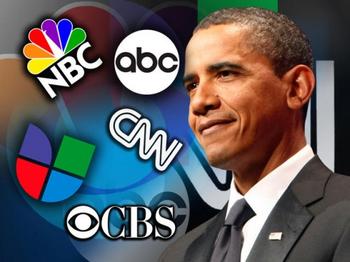By Lance Morrow • Wall Street Journal
The Democratic National Committee will regret its decision to bar Fox News from hosting any of its 2020 presidential primary debates. Just as the game begins, the committee has planted the idea that the Democrats mean to run a rigged election—not a happy thought to encourage in view of the way the party’s leaders fiddled with the process in 2016 to favor Hillary Clinton over Bernie Sanders.
The Democrats consider Fox a propaganda arm of the Trump administration, but they have their own propaganda arms. Most of the mainstream media manifest a deep affinity for progressive Democrats and their agenda. To exclude Fox smacks of Soviet one-party theatrics.
The journalists at CNN, MSNBC, the Washington Post and the New York Times and, broadly speaking, the elected officials and paid operatives of the Democratic Party—almost all of these people agree on the issues of the day: women’s rights, abortion, gay marriage and other LGBTQ issues, Black Lives Matter, gun control, immigration, the border wall, family separation at the U.S.-Mexican border, Russian collusion, Brett Kavanaugh’s fitness and so on. They agree, above all, in opposing and loathing Donald Trump.
MSNBC’s “Morning Joe” unfolds each weekday morning as a relentless, ritualized denunciation of Mr. Trump and all his works. With almost hilarious single-mindedness, the program’s repertory company addresses itself to the work of discrediting and—they hope—one day ousting the president.
It will be fatal to Democrats’ chances in 2020 to encourage the suspicion they won’t tolerate points of view that differ from progressive orthodoxy. Unbiased viewers know that Fox employs many credible journalists: Bret Baier, Martha McCallum and Chris Wallace, for example.
Anyway, Fox journalists asking the questions would only sharpen the debate and increase the candidates’ credibility. The ideologues at the DNC don’t grasp the virtue of competing ideas. Jacobins rarely do.
True, Sean Hannity whispers in Mr. Trump’s ear. That is probably a bad idea, but it has abundant historical precedent. The muckraking journalist Lincoln Steffens of McClure’s Magazine, author of “The Shame of the Cities,” met often with President Theodore Roosevelt to advise him on progressive policy.
Arthur Krock, Washington bureau chief and a columnist for the New York Times, was in the Kennedy family’s pocket for years. He wrote columns in the late 1930s pushing Joseph P. Kennedy, John F. Kennedy’s father, for president. The journalist had the sense to turn down the patriarch’s offer of a car one Christmas, considering the bribe too blatant. Krock used his influence on the Pulitzer board to engineer a 1957 prize for JFK’s “Profiles in Courage.”
Henry Luce, co-founder and editor in chief of Time Inc., regarded his magazines as the voices of the American superego. He liked to tell his countrymen what to think, and presidents how to act. Presidents feared Luce and his ability to teach and preach to tens of millions of American voters every week. Luce had an especially proprietary sense of President Dwight Eisenhower, whom his magazines backed in 1952. Intellectuals damned Luce and envied him his vast readership and almost unique influence upon the American popular mind. Phil Graham, publisher of the Washington Post, was an intimate adviser to Lyndon Johnson, notably at the 1960 Democratic convention, where LBJ sought the top spot on the ticket but settled for the second.
President Kennedy and Ben Bradlee, of Newsweek and later of the Washington Post, had a glamorous friendship that was close and, from a journalistic point of view, not quite ethical.
The DNC made a bad move. One or two of the declared Democratic candidates might distinguish themselves now by demanding that the committee reverse itself and invite Fox News—and its audience—back into the American electoral process.
